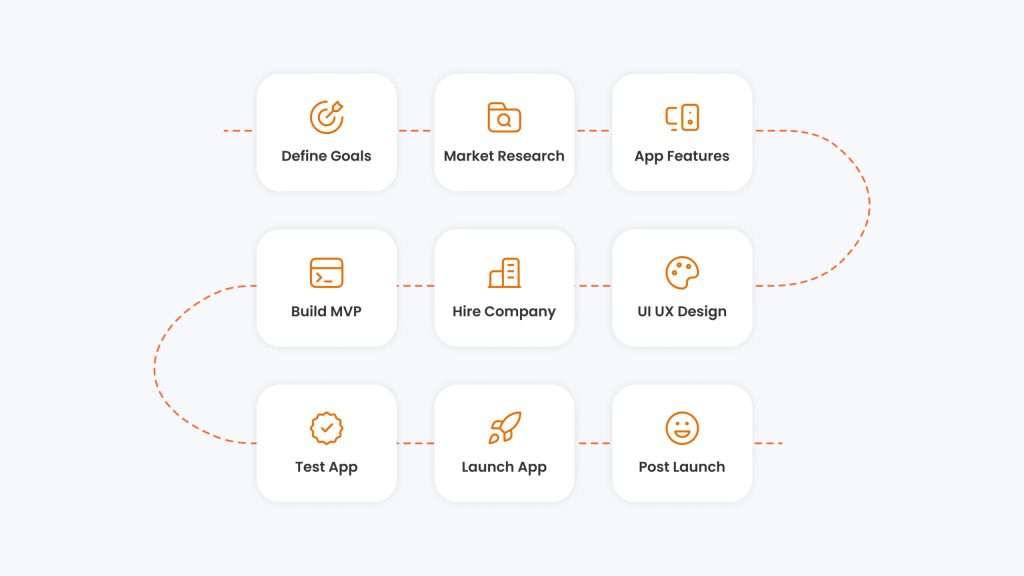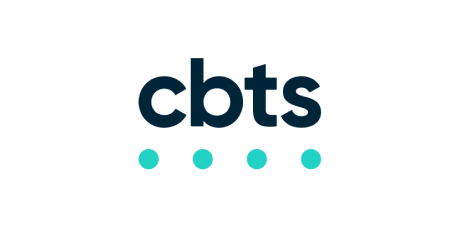A Chance for Entrepreneurs and Businesses With 27.8 billion app downloads from Google Play and 8.3 billion from the Apple App Store in Q3 2021 (according to Statista), the mobile app market is flourishing. This guide explores all aspects of mobile app development, its benefits for Business owners and entrepreneurs, and cost strategies for different types of apps. Get started on your app journey now!
What Is Mobile App Development?
Mobile app development is the creation of software applications for smartphones. These apps can be pre-installed, downloaded from an app store, or accessed through a mobile web browser. Mobile apps rely on a network connection to interact with remote computing resources, and the development process includes the following:
- Building installable software packages
- Implementing backend services such as data access through an API
- Testing the app on target devices
To ensure scalability and robustness in the final product, factors such as hardware requirements, screen sizes, and other development considerations must be considered.
Why Build An App?
Mobile apps have become indispensable to every business, whether a startup or a well-established company. As a Businessowner, you must recognize mobile app development’s benefits. Some of how mobile apps benefit businesses include:
Providing more value to customers: With the increasing technological advancements, consumers expect more from businesses. Mobile apps have become an excellent channel for meeting these user expectations and providing more value to customers. For example, retail shopping is one of the Business categories that benefit the most from mobile apps. By shifting to a retail mobile app, you can make your goods and services more accessible and easy to use and improve the customer experience.
Building a stronger brand: The more value you offer customers, the more they will be interested in your brand. Branded mobile apps are a great way to build a stronger brand and make a lasting impact on your target audience. You can collect data from your app to understand your target audience better and improve your brand marketing strategy.
Achieving increased customer engagement: One of the best ways to increase revenue generation and brand awareness is to focus on improving customer engagement. To achieve higher engagement levels, app owners should include features such as segmented targeting, loyalty programs, continuous features updates, and discounts. Paying attention to UI/UX design is crucial to ensure a positive user experience.
Gaining a competitive edge: It takes time to keep up with competitors in the ever-changing digital landscape. A mobile app gives you a significant advantage over competitors by offering fast communication and improved customer experience. Over time, the positive impact of a mobile app strategy on your revenue generation will become evident.
Building a personalized marketing channel: Mobile apps provide digital marketers with direct access to user information, which can be used to improve marketing efforts and campaigns. By collecting data from user sessions within the app, marketers can deliver more effective and personalized content to users than traditional marketing channels.
How To Develop A Mobile Application

I. Define Your Goals
- Clarity regarding app development goals is crucial for success
- Set measurable goals for end-users and business
- Use KPIs to measure and track goal success
- Example: reduce shopping cart abandonment rates for e-commerce app
II. Research The Target Market
- Conduct research on the target market and consumers
- Learn about user location, age, and device type
- Check top app user reviews for insights
III. Decide On App Features
- Identify necessary features to serve users best
- Focus on simplicity in early development stages
- Avoid adding unnecessary features that increase cost and time
IV. Choose Intuitive UI/UX Design
- A combination of attractiveness and functionality measures the app’s effectiveness.
- Make sure the app is intuitive, simple, engaging, and does what it says
- Consider user interface and user experience for the best results
- Example: innovative UI/UX design for Pizza Hut increased conversions by 30%
V. Hire An App Development Company
The benefits of hiring a mobile app development company:
- Access to industry expertise and the latest technologies
- A team of UI/UX designers, project managers, app developers, and market specialists
- Consideration of your vision and valuable suggestions
VI. Build MVP (Minimum Viable Product)
The advantages of developing an MVP:
- Low development cost and efforts
- Gauging the acceptance of your app idea
VII. Test Your App
Importance of testing in app development:
- Test performance, content, and user experience
- Benefits of proper testing: reduced cost and time, bug identification, and improved reputation
VIII. Launch Your App
- Submitting your app to Apple’s App Store or Google Play Store
- Compliance with developer guidelines and monetization strategy
IX. Post-Launch Activity
- Marketing your app to reach your target audience
- Creating informative and attractive videos
- Utilizing the potential of social media and digital platforms
Types Of App Development
Native App Development
- Two separate apps for Android and iOS.
- Opted by businesses to fulfil specific platform-aligned goals, e.g. user base or revenue.
- Reasons for choosing native app development over cross-platform or web apps.
- Scaling is limited to Android and iOS platforms.
Android App Development
- 48 million apps on the Play Store as of Q1 2021.
- Ideal for businesses targeting global user base and growth.
- Multiple revenue sources, customization freedom, and low entry barrier.
iOS App Development
- 2 million apps available on App Store.
- Chose by businesses for revenue generation potential.
- 63% of total app revenue in 2021 came from iOS.
- Established markets in developed nations and strict quality guidelines for App Store attract users willing to pay.
Revenue Comparison: iOS vs Android
- Total app revenue in 2021 was $133 billion, a 19% YoY increase. iOS accounted for 63% of total revenue.
- The difference in revenue is attributed to established markets in developed nations and strict quality guidelines.
Cross-Platform App Development
- One app is published on both Android and iOS platforms.
- Advantages: code reuse, low development cost/efforts, more excellent audience reach.
- Disadvantages: design differences, slow app updates, lack of app quality.
- Select framework/library wisely to ensure high advantages and common disadvantages.
Consult with a partnered app development agency for insights.
Progressive Web Apps
Another option apart from native and cross-platform app development is Progressive Web Apps (PWA), which is gaining popularity as the best option for businesses looking to increase their reach while eliminating the restrictions from the Play Store & App Store.
Advantages of Progressive Web Apps:
- Progressive Enhancement
- Mobile app-like experience
- Progressive Web Design
- Re-engagement
- Work offline
- Feature-rich
Hybrid Mobile Apps
A hybrid mobile app is based on a web view that runs on a web application within a native browser. These apps are built using app development languages such as CSS, HTML, and JavaScript, and then Cordova is used for wrapping them into native apps.
Advantages of Hybrid Mobile Apps:
- Cost-effective
- Code reuse
- User experience and performance similar to native apps
Comparison Of App Development Types
Parameters | Native App Development | Cross-platform App Development | Hybrid App Development | Progressive Web App Development |
Definition | Apps run natively on platform | One app published on Android and iOS | Web view based on web application in native browser | Hybrid of web pages and native apps |
Tools and technologies used | Java, Kotlin, Python, etc. | Xamarin, NativeScript, Node.js, etc. | Objective C, Ionic, HTML5, etc. | Javascript, Ruby, CSS, etc. |
Advantages | 1. Great user experience, 2. Access to device APIs | 1. Single code for multiple platforms, 2. Easy to maintain | 1. One codebase for multiple platforms, 2. Access to device hardware | 1. Same app for web and mobile, 2. No installation or updates |
Performance | Fastest speed and efficiency | Slower than native apps due to abstraction layer | Slower than native and cross-platform apps | Decently fast, dependent on internet connection |
Mobile Application Development Trends
The Internet Of Things (IOT)
The IoT refers to the growing network of connected devices providing automated control and convenience to users. Examples include innovative home technology, such as connecting to security systems and adjusting thermostats remotely. The global IoT market is expected to reach USD 1,842 billion by 2028, with revenue from technology associated with the IoT reaching 1.6 trillion by 2025.
5G
The rollout of 5G is expected to significantly impact app development in 2022, improving speed, efficiency, and functionality. 5G is estimated to deliver a 10x decrease in latency while boosting traffic capacity and network efficiency. Developers can add new features and functionalities to apps without negatively affecting performance. 5G network speed can also be leveraged during the testing and development stages.
Augmented Reality And Virtual Reality
AR and VR are growing mobile app development trends in 2022. AR has a wide range of uses in apps, such as L’Oreal Paris’ Style My Hair app, which showcases different hair colours and styles directly to the user. VR is mainly seen in gaming apps but can be connected with apps, smartphones, and wearables to enhance the gaming experience.
Predictive Analytics
Predictive analytics forecasts events using collected data and technologies like ML and AI. Tech giants like Netflix have used predictive analytics for years, and in 2022 it will be implemented in a broader range of mobile apps to enhance UI/UX and increase customer retention and engagement.
Artificial Intelligence And Machine Learning
AI and ML have been present in the mobile app development industry for a while, but there is still room for growth in utilizing their full potential. AI features can be integrated into a mobile app, such as image recognition, sentiment recognition and classification, and speech recognition. AI can improve app performance at every level and change how apps were developed in 2022.
Mobile Application Development Mistakes To Avoid
Lack of Proper Targeting
- Understand the target market and trends
- Research the competition and improve the app’s interaction with the target audience
- Poor User Interface (UI)
- Design with a flowchart
- Pay attention to the resolution
- Avoid a long and unskippable intro animation
- Careful with loading time animations
- Consider gesture-based interface as an advanced feature
Lack Of Monetization Strategy
- Choose a profitable monetization model (paid ads, in-app purchases, subscriptions, etc.)
- Overloading with Features
- Limit the number of features for better performance and user experience
Not Considering An MVP
- Develop an MVP to test the product in actual market conditions
- Receive valuable feedback and improve the final product.
- Choosing the Right Mobile App Development Partner
In-House Vs Outsourced Development
- Develop the app in-house
- Invest in an offshore agency
- Invest in a freelancer developer
Advantages of Outsourcing to an Offshore Mobile App Development Company:
- Low development cost
- Great app quality
Choosing between an App Development Company and a Freelance Developer:
- Hiring an app development company
- Hiring a freelance mobile app developer
- Risks associated with outsourcing mobile app development services.
How To Hire A Mobile App Development Company?

The outsourcing industry is filled with horror stories of projects gone wrong. To avoid these pitfalls, it’s essential to have a list of questions to evaluate the potential mobile app development agency before finalizing your partnership.
Key Questions to Ask:
- Background of the agency and its executive team
- Design engagement process and deliverables
- Project approach, including variables and risks
- Quality assurance process
- Technical documentation standards
It’s also essential to review the company’s portfolio and speak with past clients to better understand their work and expertise.
What to Expect: Once you’ve chosen a mobile app development company, you can expect two things:
- To officially enter the mobile app development process
If you’ve invested in a well-established company, work with a reputable agency that can deliver high-quality results.
- Cost of Mobile App Development
The cost of mobile app development is one of the most crucial factors that impact the entire mobile journey of a business. In this article, we will discuss the rough estimate of the mobile app development cost and the factors that affect the price.
Cost Breakdown Structure: The mobile app development cost can range from $25,000 to $200,000+. The exact price depends on various factors, such as the app’s purpose, platform, level of complexity, size of the app development agency, and location.
How WTA Studios Can Help
At WTA, we have extensive experience developing unique and innovative mobile applications for businesses. Our team has worked on several successful projects that have received funding and have been downloaded by many users.
If you want to create an app or learn more about mobile app technology, feel free to contact us. Our team will be happy to assist you in your app development journey.







